
Find Help
More Items From Ergsy search
-
Is aspirin effective in preventing other types of cancer?
Relevance: 100%
-
Has the FDA approved aspirin for cancer prevention?
Relevance: 100%
-
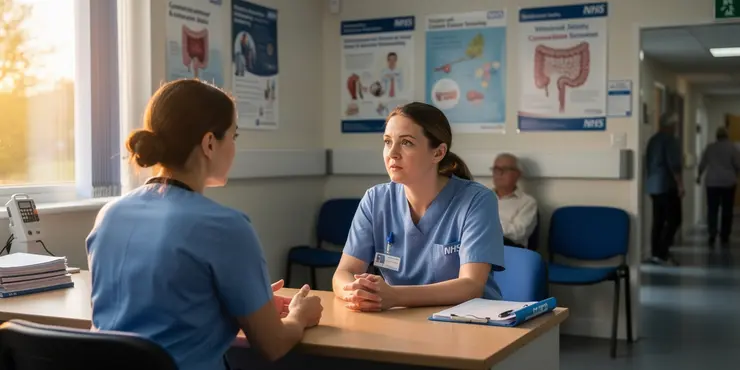
Is aspirin recommended for everyone to prevent colorectal cancer?
Relevance: 100%
-
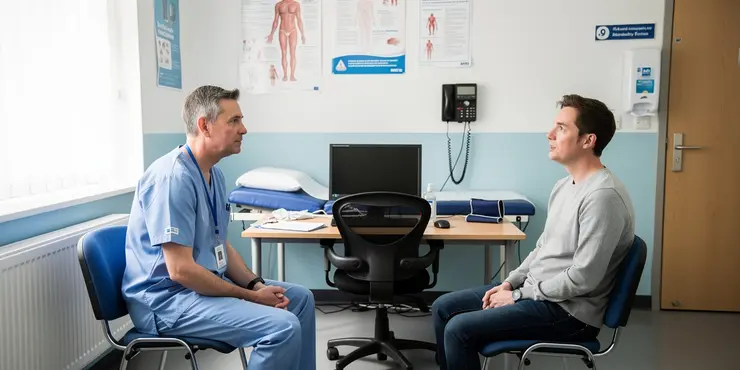
What should I do if I'm considering aspirin for cancer prevention?
Relevance: 99%
-
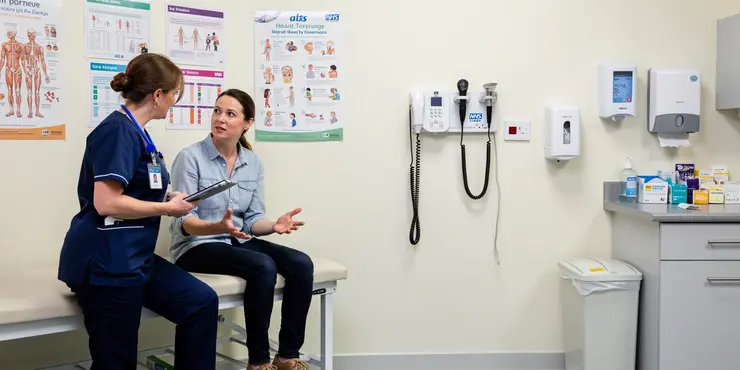
What dosage of aspirin is considered effective for cancer prevention?
Relevance: 96%
-
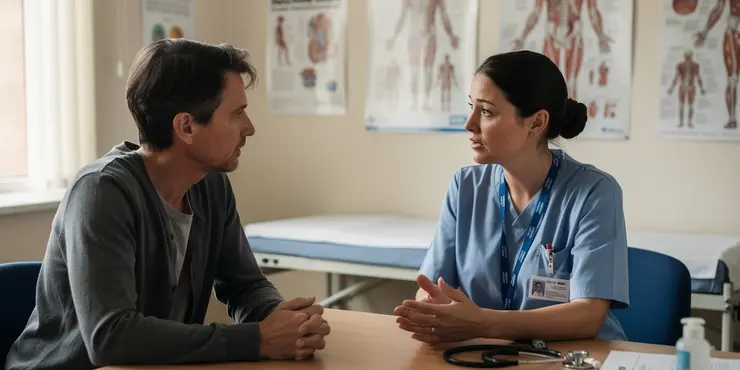
What do health organizations say about aspirin and cancer prevention?
Relevance: 94%
-
How long do studies suggest taking aspirin for cancer prevention?
Relevance: 93%
-
Is aspirin more effective for certain age groups in preventing colorectal cancer?
Relevance: 90%
-
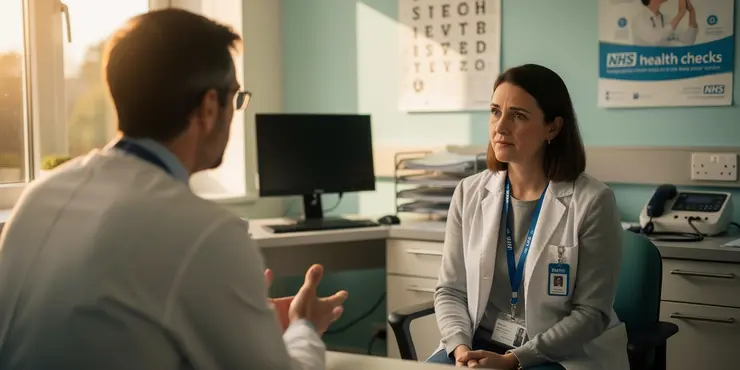
Can aspirin stop colorectal cancer?
Relevance: 87%
-
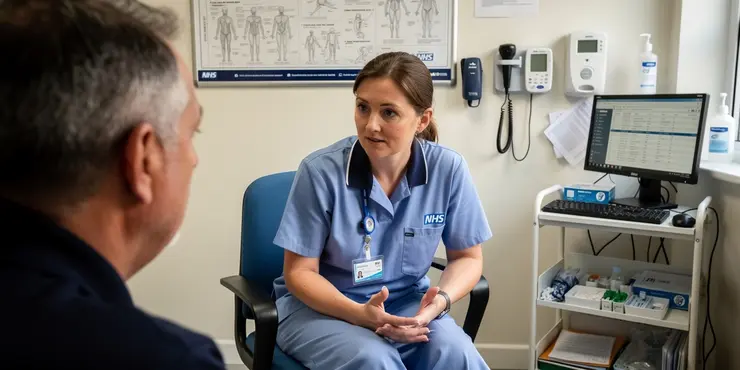
Has aspirin been proven to cure colorectal cancer?
Relevance: 82%
-
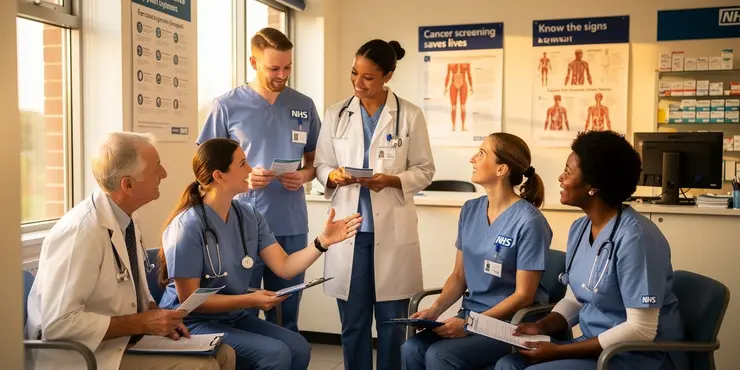
How does aspirin work to reduce cancer risk?
Relevance: 81%
-
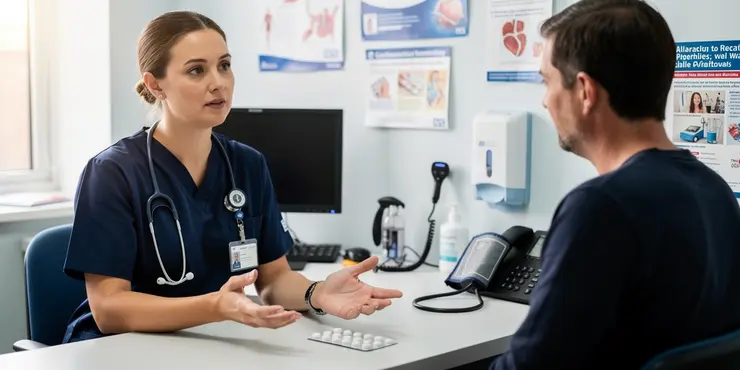
Should people with a family history of colorectal cancer take aspirin?
Relevance: 78%
-
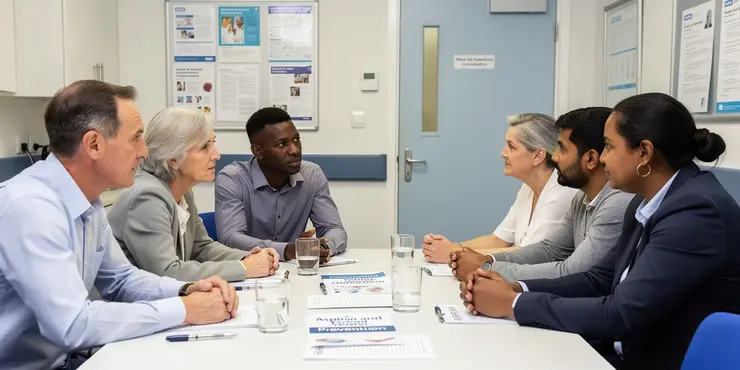
Can aspirin prevent colorectal cancer?
Relevance: 77%
-
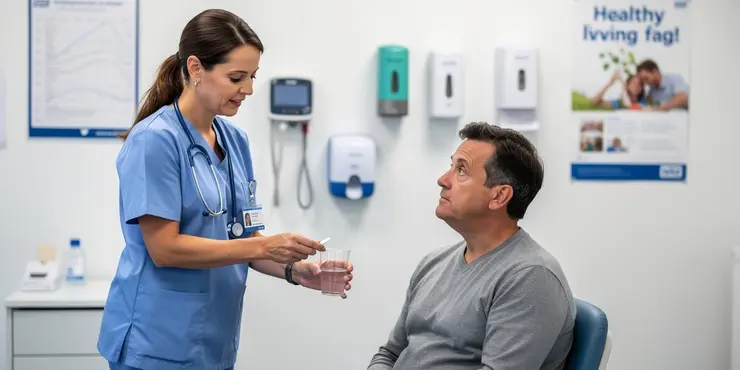
What is Aspirin?
Relevance: 63%
-

Are Aspirin and Ibuprofen the same?
Relevance: 59%
-
Are there ongoing studies about aspirin and colorectal cancer?
Relevance: 59%
-
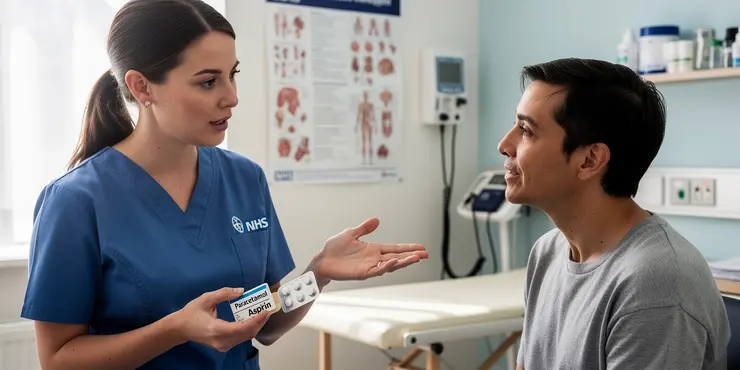
Is Paracetamol the same as Aspirin?
Relevance: 59%
-
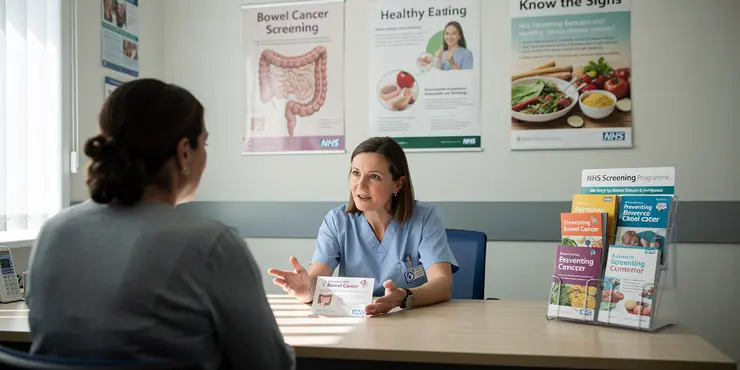
Can bowel cancer be prevented?
Relevance: 57%
-
Can aspirin interact with other medications?
Relevance: 57%
-
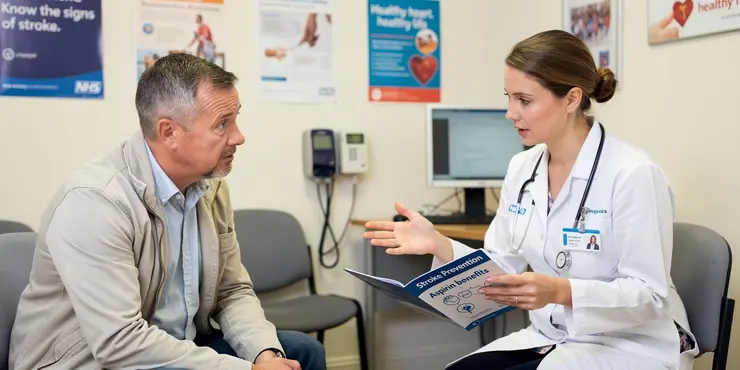
Can aspirin help in reducing the risk of strokes?
Relevance: 56%
-
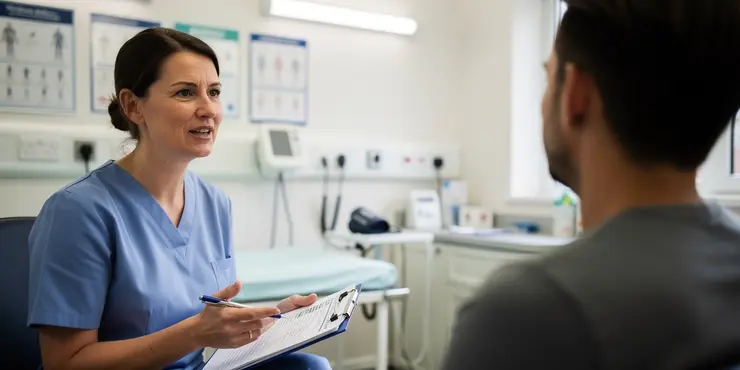
What are the side effects of Aspirin?
Relevance: 55%
-
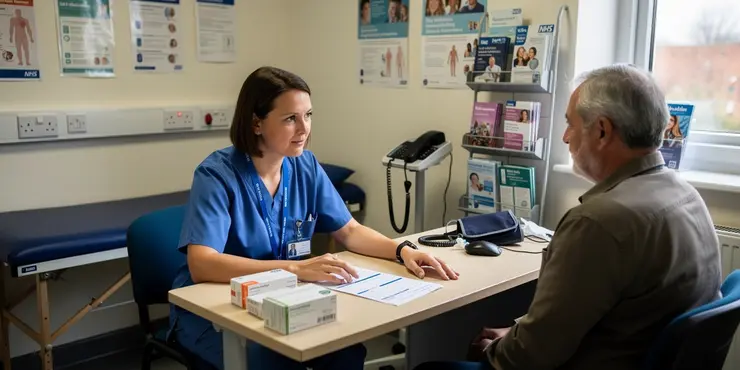
Can I take Aspirin and Ibuprofen together?
Relevance: 53%
-
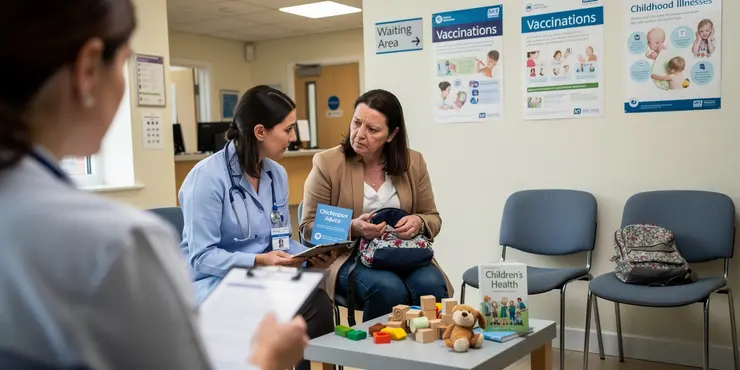
Is it safe to use aspirin to treat chickenpox symptoms?
Relevance: 51%
-
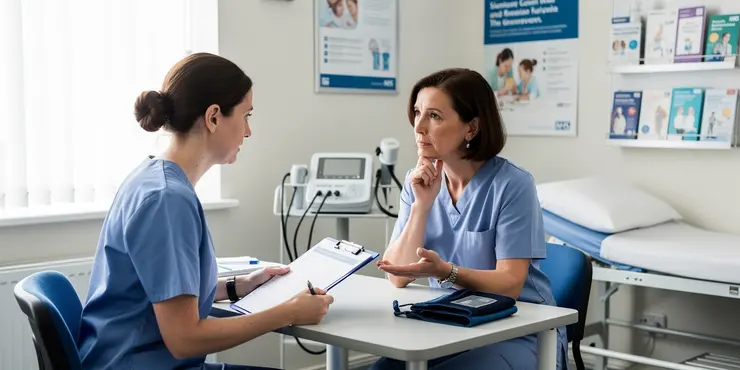
What is the difference between Aspirin, Paracetamol, and Ibuprofen?
Relevance: 51%
-
Should individuals with certain medical conditions avoid aspirin?
Relevance: 51%
-
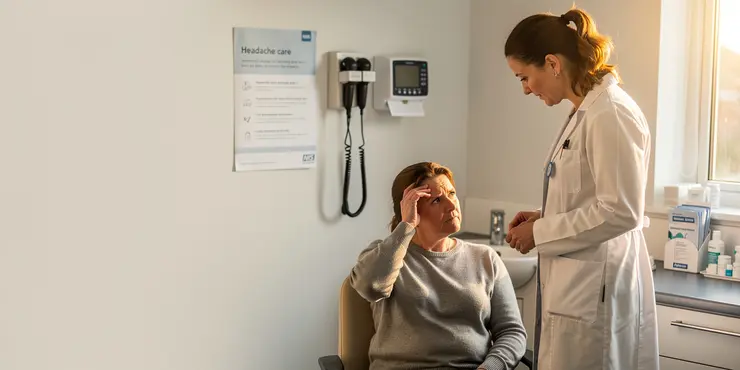
Which one is better for headaches: Aspirin or Paracetamol?
Relevance: 51%
-
What is the difference between aspirin, paracetamol, and ibuprofen?
Relevance: 50%
-

Can lifestyle changes help prevent testicular cancer?
Relevance: 48%
-
Can lifestyle changes also help prevent colorectal cancer?
Relevance: 46%
-
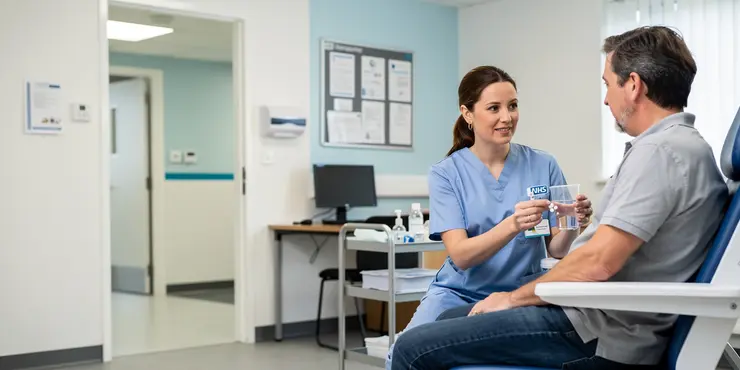
What is Aspirin?
Relevance: 46%
-
Do over-the-counter medications help in preventing heart attacks and strokes?
Relevance: 45%
-
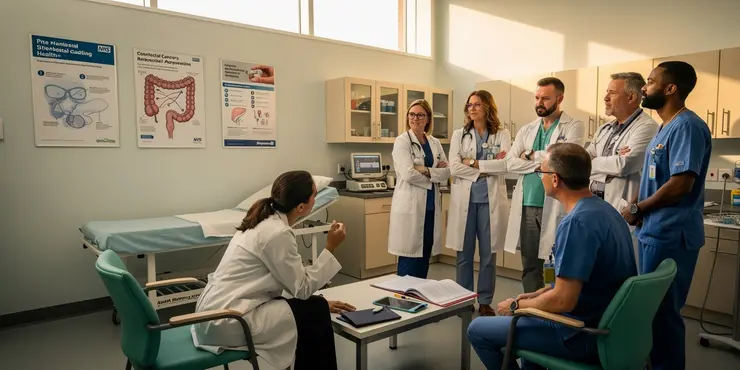
Do all studies agree on aspirin's effectiveness in preventing colorectal cancer?
Relevance: 43%
-

Are there risks associated with taking aspirin regularly?
Relevance: 38%
-
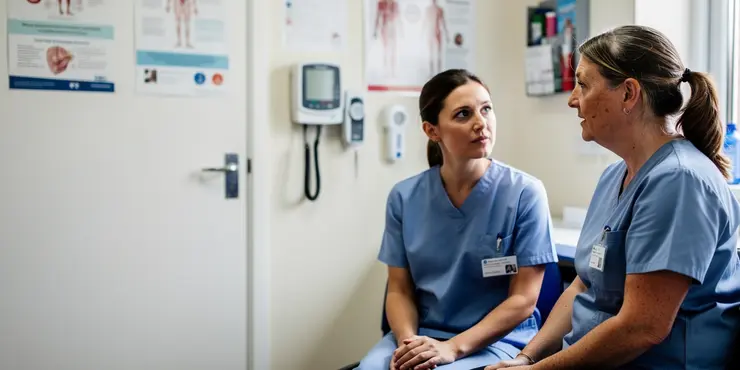
Endometrial Cancer
Relevance: 38%
-
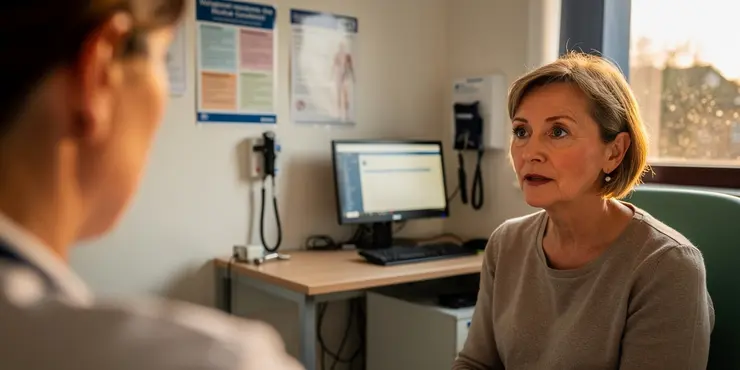
Vaginal Cancer
Relevance: 38%
-
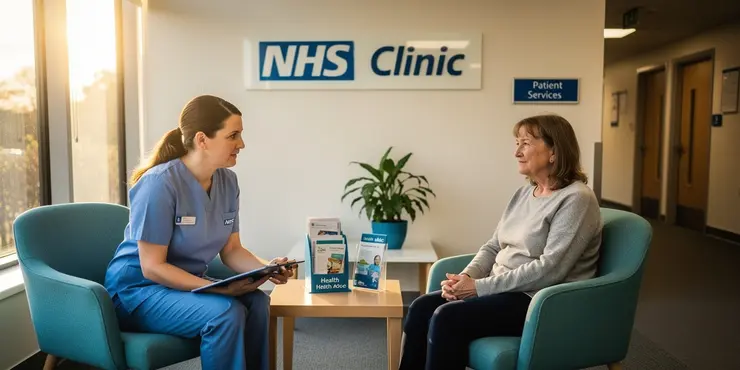
What is Cancer?
Relevance: 38%
-
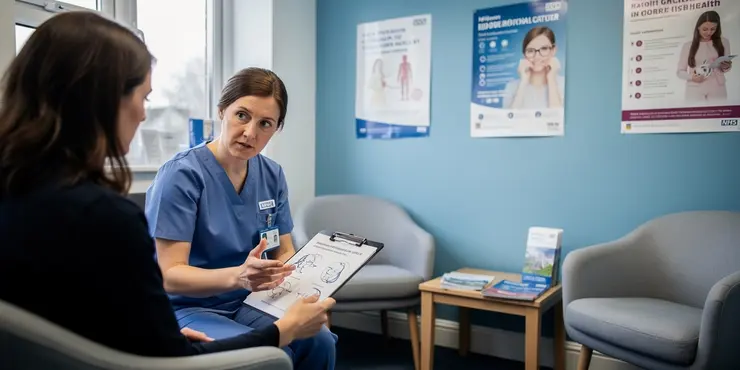
Endometrial Cancer
Relevance: 37%
-
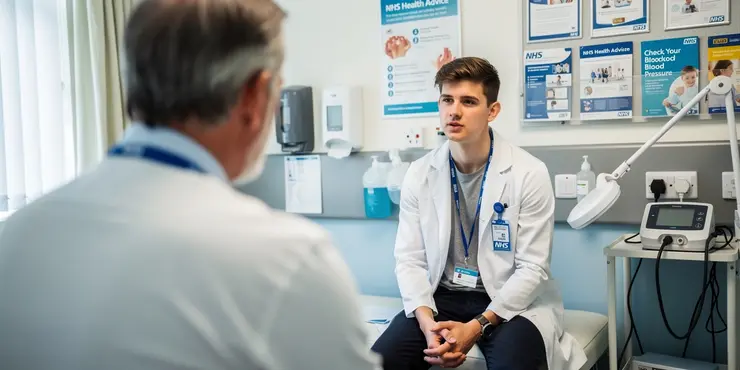
What is testicular cancer?
Relevance: 37%
-
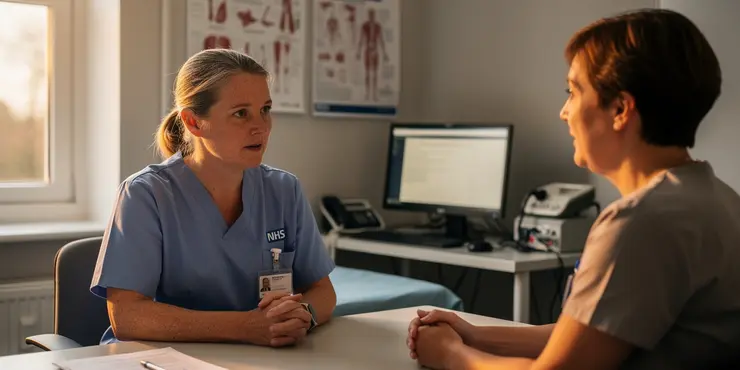
Endometrial Cancer
Relevance: 37%
-
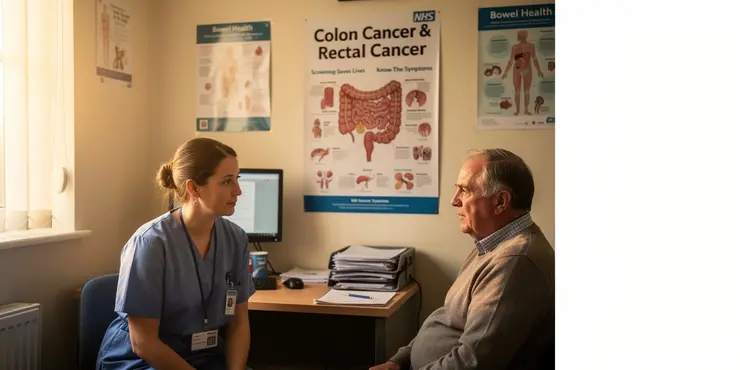
What is the difference between colon cancer and rectal cancer?
Relevance: 37%
Understanding Aspirin and Its Use
Aspirin, a common medication known for its pain-relieving and anti-inflammatory properties, has been a staple in medicine cabinets for over a century. In addition to its traditional uses, research has increasingly focused on the potential of aspirin to prevent certain types of cancer. This interest stems from aspirin's ability to inhibit the cyclooxygenase (COX) enzymes, which play a role in inflammation and cell proliferation.
Aspirin and Cancer Prevention
Studies have suggested that aspirin may reduce the risk of several cancers, most notably colorectal cancer. The evidence is so compelling that guidelines in the UK now recommend aspirin for some individuals at high risk of bowel cancer. The anti-inflammatory properties of aspirin are thought to interfere with cancer development, supporting its potential role as a preventive agent.
Efficacy Against Other Types of Cancer
Beyond colorectal cancer, research is ongoing into aspirin's efficacy against other cancer types. Some studies indicate a possible protective effect against esophageal, stomach, and breast cancers. However, results are mixed and often depend on dosage, duration of use, and individual patient factors. For instance, a study involving breast cancer suggested lower incidences in regular low-dose aspirin users, prompting further investigation.
The Role of Clinical Trials
Clinical trials continue to explore aspirin's potential as a cancer preventive. The Aspirin for Cancer Prevention (AsCaP) studies in the UK are evaluating long-term aspirin use and its effects on cancer incidence. Preliminary results are promising, yet more robust evidence is needed to make definitive clinical recommendations for broader cancer prevention.
Risks and Considerations
While the potential benefits of aspirin are considerable, they must be weighed against the risks. Aspirin use can lead to gastrointestinal bleeding and other side effects, particularly in long-term use. For this reason, it is crucial for individuals to consult healthcare professionals before starting aspirin for cancer prevention, ensuring that the benefits outweigh the risks.
Conclusion
The research into aspirin's role in preventing cancer is a dynamic and evolving field. While evidence supports aspirin's preventive benefits primarily for colorectal cancer, its efficacy for other cancer types remains under investigation. As ongoing studies provide more data, healthcare guidelines may continue to adapt, potentially incorporating aspirin as a broader preventive measure against cancer. Until then, informed discussions between patients and doctors are essential to tailor decisions based on individual risk profiles.
Understanding Aspirin and Its Use
Aspirin is a medicine that helps with pain and swelling in the body. People have been using it for over 100 years. Scientists are also looking at how aspirin might help stop some kinds of cancer. This is because aspirin affects something in our bodies called COX enzymes. COX enzymes are involved in swelling and cell growth.
Aspirin and Cancer Prevention
Some studies show that aspirin might help lower the risk of getting some cancers, like bowel cancer. In the UK, doctors now suggest some people might take aspirin to help stop bowel cancer. Aspirin's ability to reduce swelling might help prevent cancer from starting.
Efficacy Against Other Types of Cancer
Scientists are studying if aspirin can help prevent other cancers too. It might help with esophageal, stomach, and breast cancers. But the results are not always clear and depend on how much aspirin people take and for how long. For example, one study showed less breast cancer in people who often took low doses of aspirin. More research is needed to be sure.
The Role of Clinical Trials
Doctors are doing tests called clinical trials to see if aspirin can stop cancer. In the UK, the AsCaP studies look at people taking aspirin for a long time to see how it affects cancer. Early results are hopeful, but more tests are needed before doctors can give strong advice for using aspirin to stop cancer.
Risks and Considerations
While aspirin might help, it can also cause problems like bleeding in the stomach. This is why it is important to talk to a doctor before taking aspirin for cancer prevention. A doctor can help decide if aspirin is a good choice for you.
Conclusion
Scientists are learning more about how aspirin might help prevent cancer. Right now, it seems most helpful for preventing bowel cancer. We need more studies to see if it can help stop other kinds of cancer too. As we learn more, doctors might change their advice. For now, it's important for people to talk with their doctors to make the best choice based on their health.
Frequently Asked Questions
What types of cancer might aspirin prevent?
Research suggests that aspirin may help prevent certain cancers, particularly colorectal cancer, and possibly some other gastrointestinal cancers.
How does aspirin work in cancer prevention?
Aspirin may help prevent cancer by reducing inflammation, inhibiting platelet aggregation, and potentially inducing apoptosis in cancer cells.
Is there strong evidence supporting aspirin's effectiveness in preventing cancer?
There is some evidence, particularly for colorectal cancer, but more research is needed to confirm aspirin's effectiveness in preventing other types of cancer.
Should everyone take aspirin to prevent cancer?
No, aspirin use should be based on individual health profiles and discussed with a healthcare provider, due to potential risks like gastrointestinal bleeding.
Are there risks associated with using aspirin for cancer prevention?
Yes, aspirin can cause side effects like gastrointestinal bleeding, ulcers, and hemorrhagic stroke, especially with long-term use.
What dose of aspirin is considered for cancer prevention?
The optimal dose for cancer prevention is not well established and should be determined by a healthcare provider based on individual risk factors.
Has the FDA approved aspirin for cancer prevention?
No, the FDA has not approved aspirin specifically for cancer prevention. It is approved for cardiovascular conditions.
Do health organizations recommend aspirin for cancer prevention?
Some organizations, like the U.S. Preventive Services Task Force, suggest aspirin for colorectal cancer prevention in certain age groups with specific risk factors.
How does aspirin reduce the risk of colorectal cancer?
Aspirin interferes with biological pathways involved in inflammation and cell growth, potentially reducing the formation of polyps that can lead to colorectal cancer.
Can aspirin prevent cancers other than colorectal cancer?
Some studies suggest potential benefits for other cancers, such as esophageal and stomach cancers, but evidence is less consistent compared to colorectal cancer.
Is it safe for older adults to take aspirin to prevent cancer?
Older adults should be cautious and consult with healthcare providers due to increased risks of bleeding and other side effects.
Does aspirin use affect cancer mortality?
Some studies indicate that aspirin use may be associated with reduced cancer mortality, but findings are not definitive.
How long does one need to take aspirin to see potential cancer prevention benefits?
Benefits might be seen after several years of consistent use, but long-term use also raises the risk of serious side effects.
Should people with a family history of cancer consider aspirin?
People with a family history of certain cancers may discuss aspirin use with a healthcare provider to weigh potential benefits and risks.
Can aspirin interact with cancer medications?
Aspirin can interact with various medications, including cancer drugs, potentially altering their effectiveness or increasing side effects.
Is there a difference in cancer prevention between low-dose and regular-dose aspirin?
Low-dose aspirin is often used for cardiovascular prevention, and it is uncertain if higher doses offer additional cancer prevention benefits.
What should someone do if they're interested in taking aspirin for cancer prevention?
They should consult their healthcare provider for personalized advice based on their health history and risk factors.
Could aspirin use be more beneficial for some populations than others?
Yes, factors like age, genetic predisposition, and risk of cardiovascular diseases may influence potential benefits and risks.
Does aspirin help in treating cancer?
Aspirin is not a cancer treatment, but some research is investigating its role in complementing cancer therapy.
What ongoing research is being conducted on aspirin and cancer?
Ongoing studies are examining the effects of aspirin on different types of cancer, optimal dosing strategies, and its role in cancer treatment.
What cancers can aspirin help stop?
Aspirin might help stop some types of cancer. It can be especially good at helping with bowel cancer. It might also help with other stomach cancers too.
How does aspirin help stop cancer?
Aspirin is a medicine. It can help keep you healthy in some ways.
Aspirin can help stop some types of cancer. It does this by stopping bad cells from growing.
If you ever take aspirin, it is important to talk to a doctor first. The doctor can tell you if aspirin is safe for you.
Use a calendar or set a reminder to help you remember when to take aspirin if your doctor says it’s okay.
Aspirin might help stop cancer by doing three things. First, it can lower swelling in the body. Second, it can stop blood cells from sticking together. Third, it might help cancer cells die.
Does Aspirin Help Stop Cancer?
We are asking if there is proof that aspirin can stop cancer.
Aspirin is a type of medicine.
Cancer is a sickness where cells in the body grow too fast.
To understand more, ask a doctor or use tools like pictures and videos.
Aspirin might help stop some kinds of cancer, like colon cancer. But scientists need to do more studies to see if it can help with other types of cancer too.
Should everyone take aspirin to stop cancer?
Aspirin is a medicine. Some people think it might help stop cancer. But it's important to be careful.
You should talk to your doctor. They can help you decide if aspirin is good for you.
Using tools like pictures or sticky notes can help you remember what your doctor says. A friend or family member can also help you understand.
No, not everyone should take aspirin. Talk to your doctor first. Aspirin can sometimes cause problems like bleeding in the stomach.
Is taking aspirin to stop cancer safe?
Some people take aspirin to help stop cancer. But it is important to know if it is safe. Here are some tips:
- Always talk to your doctor first.
- Ask about the good and bad things aspirin can do.
- Your doctor will help you decide what is best for you.
Using pictures or videos can help you understand better. You can also ask someone you trust to explain it to you.
Yes, aspirin can sometimes cause problems. It might hurt your tummy and make it bleed inside. It can also cause sores or make blood vessels break in the brain, especially if you take it for a long time.
To help understand this, you could:
- Use pictures and drawings to show what can happen.
- Watch videos that explain about aspirin and its effects.
- Ask someone to read the text out loud with you.
- Use apps that read text to you.
How much aspirin helps stop cancer?
The best amount to take for stopping cancer is not clear. A doctor should decide this amount for each person, based on what makes them sick. You can use apps or ask someone you trust to help you remember.
Did the FDA say it's okay to use aspirin to stop cancer?
No, aspirin is not approved by the FDA to help stop cancer. The FDA says aspirin can help with heart problems.
Do doctors say to use aspirin to stop cancer?
Some groups, like the U.S. Preventive Services Task Force, say that taking aspirin can help stop colorectal cancer in some people. This is for certain ages and if they have certain health risks.
How does aspirin help stop bowel cancer?
Aspirin can help because it stops some things in the body that cause swelling and make cells grow. This might stop the tiny lumps in the bowel that can turn into cancer.
Can aspirin help stop other cancers besides bowel cancer?
Some studies say taking aspirin might help with other types of cancer. These types of cancer are the cancers in your food pipe, called the esophagus, and your stomach. But the evidence is not as strong as it is for colon cancer.
Can older people take aspirin to stop cancer safely?
Aspirin is a medicine. Some people think it might help stop cancer.
If you are older, talk to your doctor before taking aspirin. They will tell you if it is safe for you.
Ask a family member or friend to help you read and understand this.
Older people need to be careful. They should talk to their doctor because there is a higher risk of bleeding and other problems.
Can taking aspirin change the chances of dying from cancer?
Some studies show that taking aspirin might help people live longer if they have cancer. But we are not sure yet.
How long do you take aspirin to help stop cancer?
Good things might happen if you use it for a few years. But, using it for a long time could also cause bad side effects.
Should people whose family has had cancer take aspirin?
If your family has had some types of cancer, talk to your doctor about taking aspirin. They can help you understand the good and bad things about it.
Can aspirin mix with cancer drugs?
Aspirin is a medicine that helps with pain and swelling.
If you take cancer medicine, ask your doctor if it's okay to take aspirin.
Cancer drugs and aspirin might not work well together. Your doctor can tell you what is safe.
Here are some tools that might help:
- Ask a friend or family member to help you read and understand.
- Use a reading app to hear the text spoken aloud.
Aspirin is a medicine that can mix with other medicines. It can change how well they work or make side effects worse. This can happen with cancer medicines too.
Do low-dose and regular-dose aspirin prevent cancer differently?
Aspirin might help stop cancer. But there are two kinds:
- Low-dose aspirin: a small amount
- Regular-dose aspirin: a bigger amount
We want to know if taking a small amount or a big amount helps more.
Helpful Tips:
- Ask a grown-up to help you understand.
- Use pictures or drawings to remember ideas.
- Take breaks if reading feels too hard.
Aspirin is a medicine some people take to help their heart stay healthy. People are not sure if taking more aspirin can also help stop cancer.
What to do if you want to take aspirin to help stop cancer?
If you are thinking about taking aspirin to stop cancer, talk to a doctor first. They can tell you if it is a good idea and safe for you. Doctors know what will work best for your body.
Here are some helpful tips:
- Ask a friend or family member to come with you to the doctor. They can help you understand and remember.
- Write down any questions you have before you go to the doctor.
- Use a simple app for taking notes so you don't forget important advice from the doctor.
- Draw pictures or use stickers to help you understand what the doctor says.
They should talk to their doctor to get advice that is just right for them. The doctor will want to know about their health and things that might make them at risk.
Is aspirin better for some people?
Aspirin is a medicine. It helps with pain and might help some people stay healthy. But, it might help some people more than others. Talk to a doctor to see if aspirin is good for you.
Tips to help you read:
- Ask someone to read with you.
- Use a dictionary to look up hard words.
- Take breaks if you feel tired.
Yes, things like how old you are, your family health history, and heart disease can change how you might be helped or hurt.
Can aspirin help with cancer?
Aspirin is not used to treat cancer, but some scientists are studying if it can help when used with cancer medicine.
What new studies are looking at aspirin and cancer?
Scientists are doing studies to see how aspirin might help with cancer.
They want to find out:
- If taking aspirin can stop cancer from starting.
- If aspirin can help people with cancer get better.
- What the right amount of aspirin is for helping with cancer.
People can learn more by:
- Talking to their doctor about aspirin.
- Reading simple articles or watching videos about aspirin and cancer.
- Using apps or tools that explain things in simple words.
Scientists are looking at how aspirin might help with cancer. They want to know how much aspirin is best and how it could be used in cancer care.
Useful Links
This website offers general information and is not a substitute for professional advice.
Always seek guidance from qualified professionals.
If you have any medical concerns or need urgent help, contact a healthcare professional or emergency services immediately.
Some of this content was generated with AI assistance. We’ve done our best to keep it accurate, helpful, and human-friendly.
- Ergsy carfully checks the information in the videos we provide here.
- Videos shown by Youtube after a video has completed, have NOT been reviewed by ERGSY.
- To view, click the arrow in centre of video.
- Most of the videos you find here will have subtitles and/or closed captions available.
- You may need to turn these on, and choose your preferred language.
- Go to the video you'd like to watch.
- If closed captions (CC) are available, settings will be visible on the bottom right of the video player.
- To turn on Captions, click settings .
- To turn off Captions, click settings again.
More Items From Ergsy search
-
Is aspirin effective in preventing other types of cancer?
Relevance: 100%
-
Has the FDA approved aspirin for cancer prevention?
Relevance: 100%
-

Is aspirin recommended for everyone to prevent colorectal cancer?
Relevance: 100%
-

What should I do if I'm considering aspirin for cancer prevention?
Relevance: 99%
-

What dosage of aspirin is considered effective for cancer prevention?
Relevance: 96%
-

What do health organizations say about aspirin and cancer prevention?
Relevance: 94%
-
How long do studies suggest taking aspirin for cancer prevention?
Relevance: 93%
-
Is aspirin more effective for certain age groups in preventing colorectal cancer?
Relevance: 90%
-

Can aspirin stop colorectal cancer?
Relevance: 87%
-

Has aspirin been proven to cure colorectal cancer?
Relevance: 82%
-

How does aspirin work to reduce cancer risk?
Relevance: 81%
-

Should people with a family history of colorectal cancer take aspirin?
Relevance: 78%
-

Can aspirin prevent colorectal cancer?
Relevance: 77%
-

What is Aspirin?
Relevance: 63%
-

Are Aspirin and Ibuprofen the same?
Relevance: 59%
-
Are there ongoing studies about aspirin and colorectal cancer?
Relevance: 59%
-

Is Paracetamol the same as Aspirin?
Relevance: 59%
-

Can bowel cancer be prevented?
Relevance: 57%
-
Can aspirin interact with other medications?
Relevance: 57%
-

Can aspirin help in reducing the risk of strokes?
Relevance: 56%
-

What are the side effects of Aspirin?
Relevance: 55%
-

Can I take Aspirin and Ibuprofen together?
Relevance: 53%
-

Is it safe to use aspirin to treat chickenpox symptoms?
Relevance: 51%
-

What is the difference between Aspirin, Paracetamol, and Ibuprofen?
Relevance: 51%
-
Should individuals with certain medical conditions avoid aspirin?
Relevance: 51%
-

Which one is better for headaches: Aspirin or Paracetamol?
Relevance: 51%
-
What is the difference between aspirin, paracetamol, and ibuprofen?
Relevance: 50%
-

Can lifestyle changes help prevent testicular cancer?
Relevance: 48%
-
Can lifestyle changes also help prevent colorectal cancer?
Relevance: 46%
-

What is Aspirin?
Relevance: 46%
-
Do over-the-counter medications help in preventing heart attacks and strokes?
Relevance: 45%
-

Do all studies agree on aspirin's effectiveness in preventing colorectal cancer?
Relevance: 43%
-

Are there risks associated with taking aspirin regularly?
Relevance: 38%
-

Endometrial Cancer
Relevance: 38%
-

Vaginal Cancer
Relevance: 38%
-

What is Cancer?
Relevance: 38%
-

Endometrial Cancer
Relevance: 37%
-

What is testicular cancer?
Relevance: 37%
-

Endometrial Cancer
Relevance: 37%
-

What is the difference between colon cancer and rectal cancer?
Relevance: 37%


